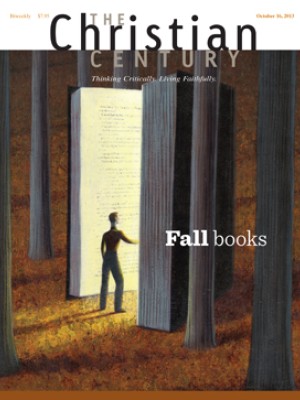Pope stuns church with pastoral approach to sexual, moral issues
Pope Francis rocked the Catholic Church and surprised the wider world with a free-ranging interview in which he envisioned a church that is not “obsessed” with a few sexual and moral issues and is more pastoral, less clerical and less doctrinaire.
Amid the widespread praise for his remarks—“Catholic is the new cool,” tweeted National Journal’s Ron Fournier —and some pointed criticism from the pontiff’s right flank lurks a critical unanswered question: Can Francis make his vision for the church a reality?
Read our latest issue or browse back issues.
More than detailing a list of reforms or policy changes he hopes to make—which may yet happen, after time and extensive deliberations—the pope on September 19 was sketching out a pastoral vision for the church and modeling a way for clergy to speak and relate to their flocks.
In order to replicate that model, Francis needs enough time to appoint bishops who share his views and who can in turn encourage and promote like-minded priests and seminarians. In many ways, the change Francis envisions will take a generation or more.
Some in this current, more conservative-minded generation of bishops have signaled their unhappiness with the pope.
“I’m a little bit disappointed in Pope Francis that he hasn’t, at least that I’m aware of, said much about unborn children, about abortion,” Rhode Island bishop Thomas Tobin said in an interview earlier in September that reflected comments made earlier by Philadelphia archbishop Charles Chaput and others.
But one day after the September 19 published interview, Francis told a gathering of Catholic gynecologists at the Vatican that abortion is the product of a “throwaway culture.”
Saying the teaching of the church is clear and he is a son of the church, the pope said: “Every baby who is not born, but is unjustly condemned to be aborted, has the face of Jesus Christ.” These remarks were “no U-turn,” said Maria Antonietta Calabro of the Italian newspaper Corriere della Sera, noting that the audience was very different.
Francis’s remarks in the interview seemed directed at those internal critics; he said flatly that “I have never been a right-winger” and noted he has been “reprimanded” for his new direction.
A major challenge is that those conservative bishops will continue to have influence if they are not replaced or sidelined, or if the 76-year-old pope has a relatively short reign.
The cautionary tale that many progressive Catholics point to is that of Pope John Paul I, the “smiling pope,” whose election in 1978 seemed to herald a new era of a pastoral papacy—and a church molded in the same spirit.
But John Paul I died after just 33 days in office, opening the way to the election of John Paul II, an enormously popular figure yet one who began a sharp tack back toward doctrinal orthodoxy and conservatism.
That’s not to say the odds are against Francis. Though he turns 77 in December, he seems to be in good health and appears at peace with the role that has been thrust upon him, in part by being pope the way he was a bishop and priest—as a pastor.
Moreover, his predecessor, Benedict XVI, was 78 when he was elected and within eight years managed to name more than 60 percent of the American hierarchy before retiring last February. Since bishops must submit their resignations to the pope at age 75, and the hierarchy skews older, a pope can name a relatively large number of bishops in a fairly short time.
In addition, Francis’s remarks may embolden more progressive clergy who previously kept their opinions to themselves.
“I think that there are a fair number of bishops here in the U.S. who have quietly gone along with the more trenchant, culture warrior approach . . . because they thought that going along was what was expected of them,” said Michael Sean Winters, a columnist for National Catholic Reporter. —RNS





